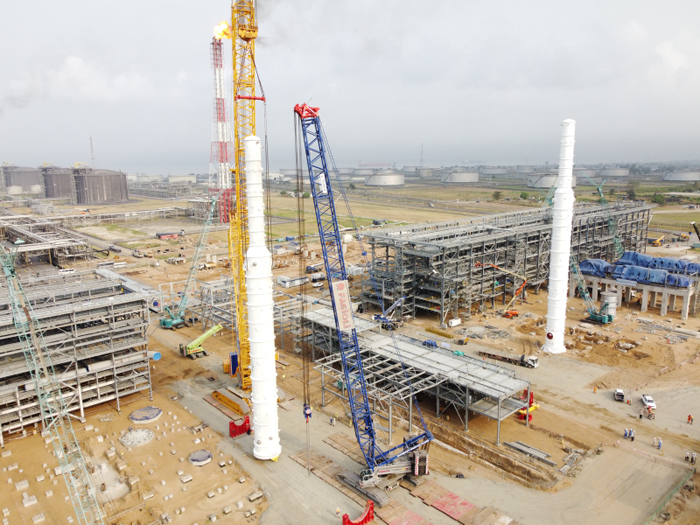Daewoo Engineering & Construction (E&C) on February 9th completed setting up a heat exchange facility at the Nigeria NLNG Train 7 project site in Nigeria.
This cryogenic heat exchanger is pivotal in liquefying substantial quantities of natural gas and facilitating refining processes, a key component in the LNG production chain.
The installation features Air Products’ AP-C3MR technology, making the new Main Cryogenic Heat Exchanger (MCHE) the world’s largest of its kind to utilize this technology, as announced by the company on Monday.
Valued at 2.1 trillion won ($1.58 billion), the Nigeria NLNG Train 7 project involves building LNG liquefaction and support facilities.
Lee Won-gil, project manager at Daewoo E&C said of the project,
- “The successful installation of the cryogenic heat exchanger, transported from the United States to Nigeria across the Atlantic Ocean, underscores the recognition of our extensive expertise and experience accumulated over the years”
Backstory
The six-train NLNG project currently generates 22.5 million metric tonnes of LNG annually, accounting for about 10% of global LNG consumption.
Adding a seventh train is expected to increase production to 30 million metric tonnes annually.
In 2021, the country initiated its ‘Decade of Gas’ development strategy, targeting the exploration of up to 600 trillion cubic feet of undeveloped gas resources.
The Managing Director of the NLNG, Philip Mshelbila had in October told the public that the $5 billion Train-7 project is now at 52% and employs 8,300 Nigerians across different levels of skillset. However, he warned that the plant might lack gas supply when completed owing to issues revolving around natural gas supply in the country.
He also discussed the difficulties the company encounters in securing adequate gas supply, which results in its six plants operating below 50% of their total capacity, leading to underproduction.

